Mugwort 50g
£3.95
Latin Name: Artemisia vulgaris syn
Plant Family: Asteraceae
Common Names: Common Mugwort, Beidiog Lwyd, Mater Herbarum, Nagadamni, Sailor’s Tobacco, & Wild Wormwood.
The Wise Woman’s Power Plant – Mugwort. Or to give it it’s proper name Artemisia vulgaris LINN, is rightly justified in being called that. Named after the Hellenic goddess of the hunt, wild animals, wilderness, childbirth, the moon, virginity and protector of young girls; Artemis. That Mugwort is steeped in so much folklore regarding its healing properties should be of no surprise given its ancient usage. Known as the Mater Herbarum — the mother of all herbs. Mugwort has been held sacred by various cultures and is thought to be the oldest of plants.
Out of stock
Description
Properties:
- Stimulant: – helps to increase alertness and energy
- Slightly Tonic: – giving a feeling of vigour or well-being
- Nervine: – having a calming effect on the nervous system
- Emmenagogue: – something that stimulates or increases menstrual flow
- Diuretic: – increases the excretion of water from bodies
- Diaphoretic: – promotes sweating
Uses:
- Smoked – either on its own or mixed with tobacco
- Make a herbal pillow by placing a handful of leaves inside your pillowcase
- Burn as an incense
- Drink as a tea
- Mugworts actions on the body account for its effectiveness in childbirth and menstruation. It is warming and slightly stimulating, helping to increase circulation and remove stagnant blood. For these reasons, if you are pregnant or think that you may be pregnant, you should not use Mugwort under any circumstances.
- This warming action also makes it effective when used as a poultice for stiff joints. The Japanese use it in a preparation called Moxas to treat rheumatism.
- Mugworts nervine and tonic properties are responsible for its use in calming frayed nerves and easing stress.
- Its constituents, including an acrid resin and tannin make it a natural insect repelling/insecticidal when made into a spray.
- Also used as a natural wormer. Culpepper states “a very slight infusion is excellent for all disorders of the stomach, prevents sickness after meals and creates an appetite. The tops with the flowers on them, dried and powdered, are good against agues. They have the same virtues with wormseed in killing worms”.
Mugwort Tea:
- Use 1 – 11/2 heaped teaspoons of Mugwort per cup
- Pour boiling water over
- Leave to infuse for 5-10 minutes
- Strain before drinking
History:
Iron Age people drank ale made from Mugwort. It was one of the 9 sacred herbs of the Anglo-Saxon’s as recorded in the ‘Nine Herbs Charm’ in the 10thC Lacnunga. The physicians of Myddfai in 13th century Wales recommended drinking ale based brews laced with Mugwort, Fennel and Mint to cure hysteria.
Folklore:
- Mugwort was believed to be a plant that offered protection to humans.
- Burnt as an incense or hung over doorways to keep evil spirits away from the home.
- In keeping with its link with Artemis, Mugwort has traditionally had a close and powerful affiliation with the moon.
- It has been used to ease the pain of childbirth and the cramps that accompany monthly menstruation.
- As a uterine stimulant it was used to bring on delayed menstruation
Mugwort the Dream Herb:
- As interesting and beneficial as these mundane uses might be Mugwort really comes into its power when smoked or drank at night before retiring, before a ceremony or work involving Otherworld.
- It’s stimulating properties make it well known for its ability to promote vivid dreams, enhance intuition and intensify visionary experience.
- Often used in Shamanic practice to aid in work involving altered or trance states.
- The volatile oils found in all parts of the plant contain the psychoactive terpine Thujone.
Cautions:
- Do not use if you are pregnant or even think that you may be pregnant. Mugwort stimulates menstruation and can therefore cause miscarriage
- Hayfever & Asthma sufferers should be aware that Mugwort can cause severe reaction
- Thujone is a known poison if consumed in larger doses or over extended periods3 excessive use can be dangerous
Sleep Disturbance: Mugwort induces lucid dreaming by altering your sleep pattern creating more REM sleep time. Resulting in less ‘deep sleep’ it can leave you feeling tired the next day. Continuous use can cause exhaustion
Related
Only logged in customers who have purchased this product may leave a review.
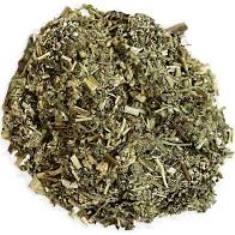
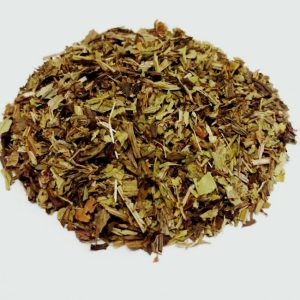
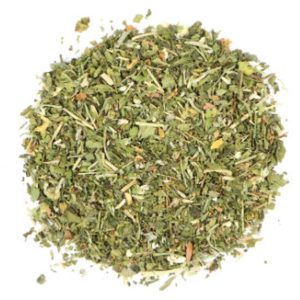
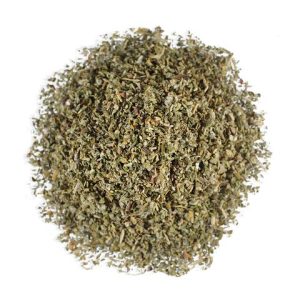
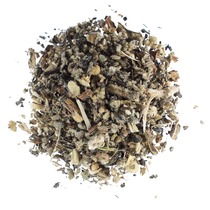
Reviews
There are no reviews yet.